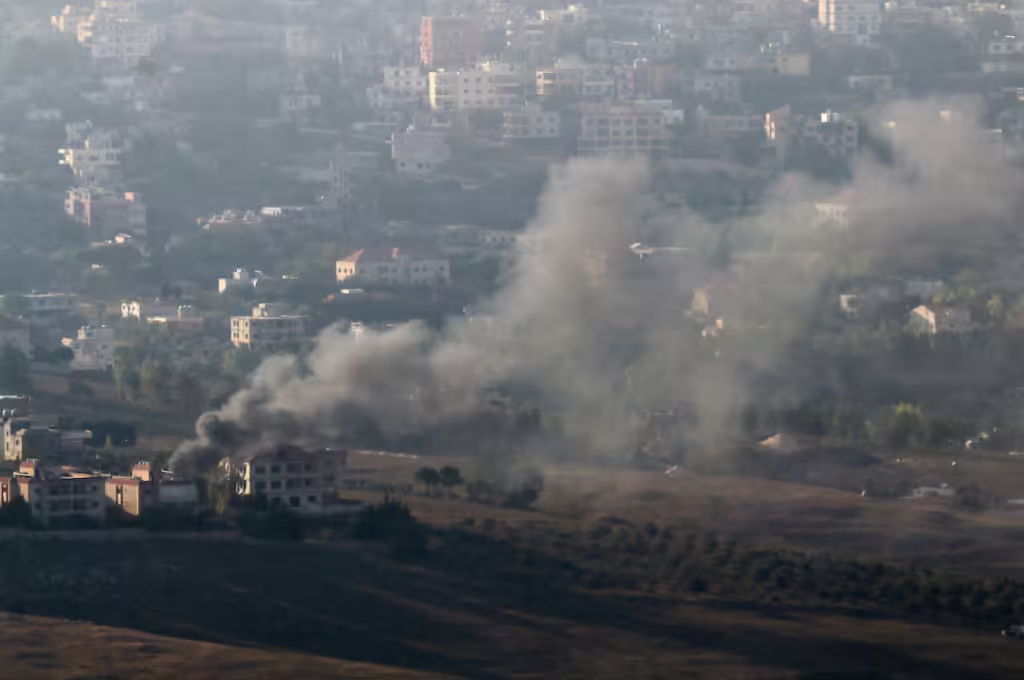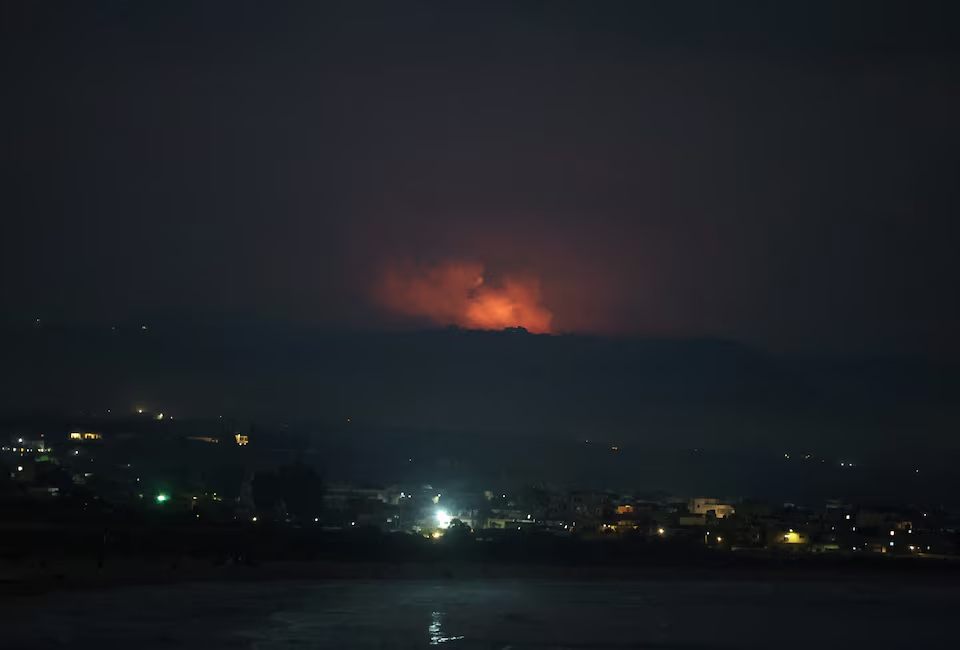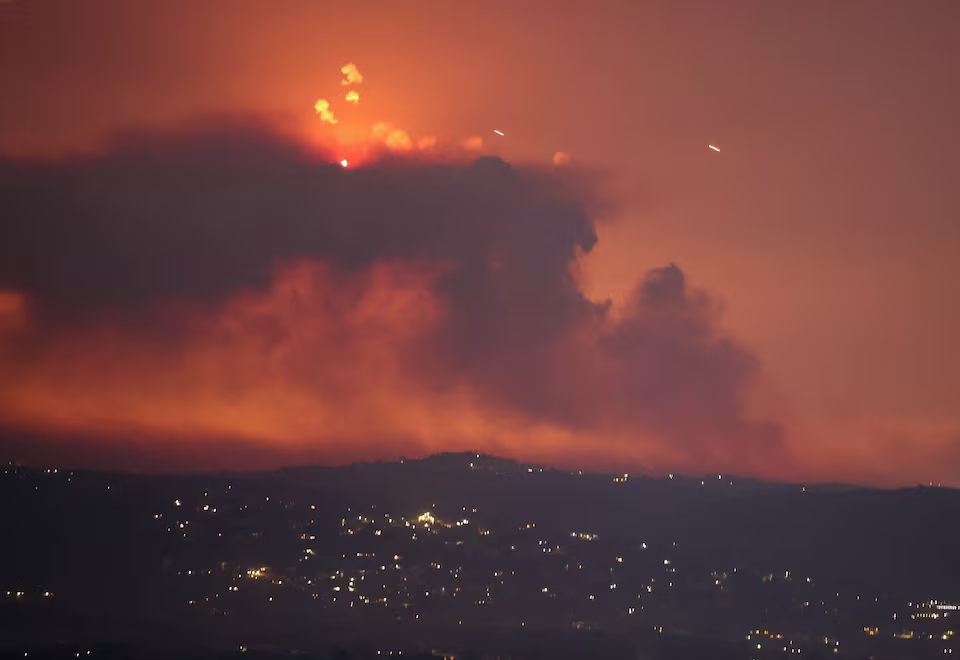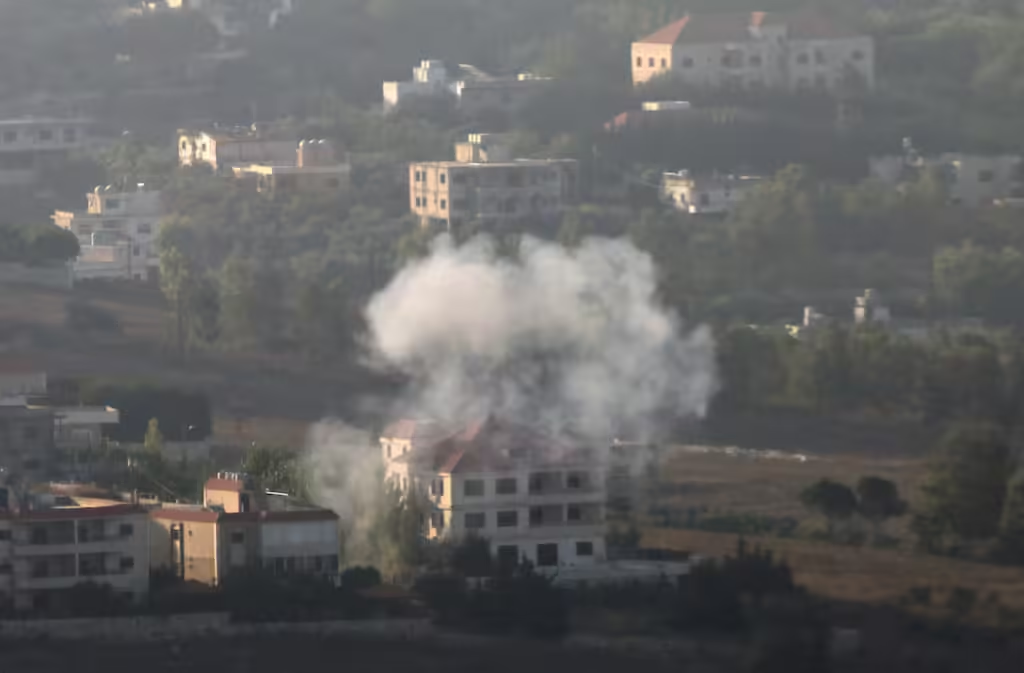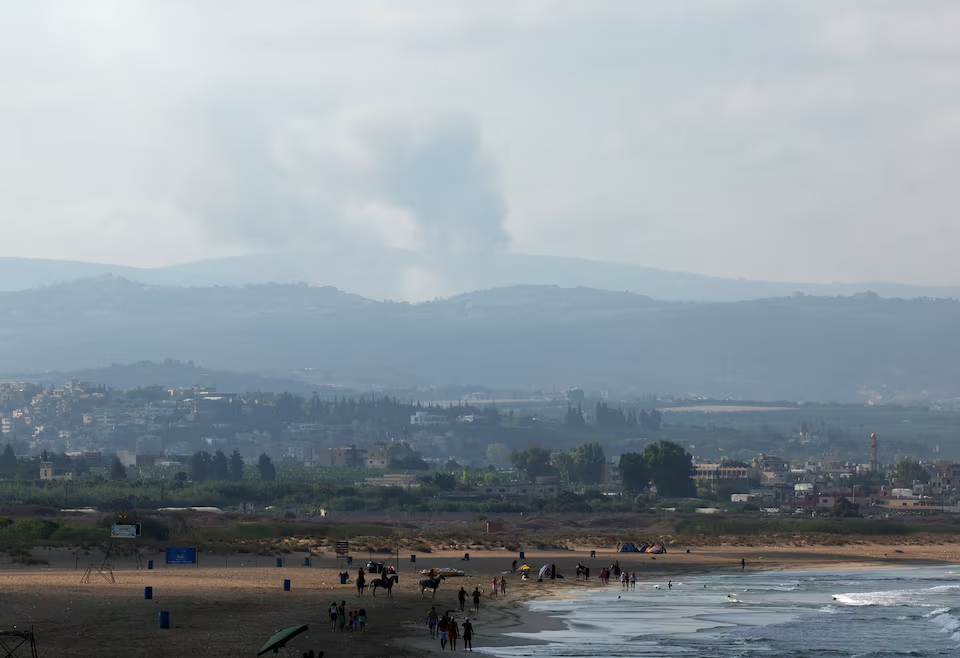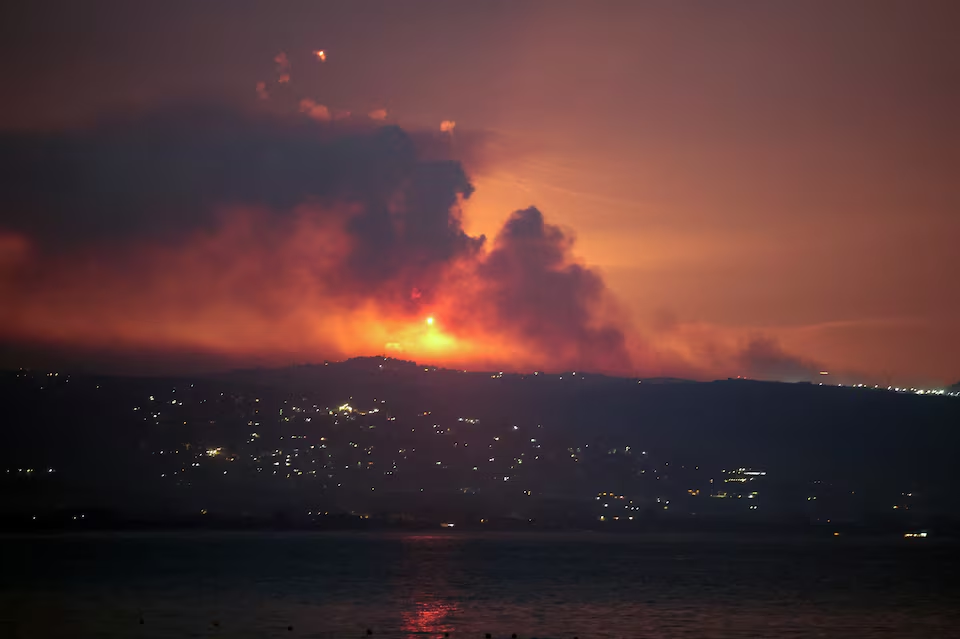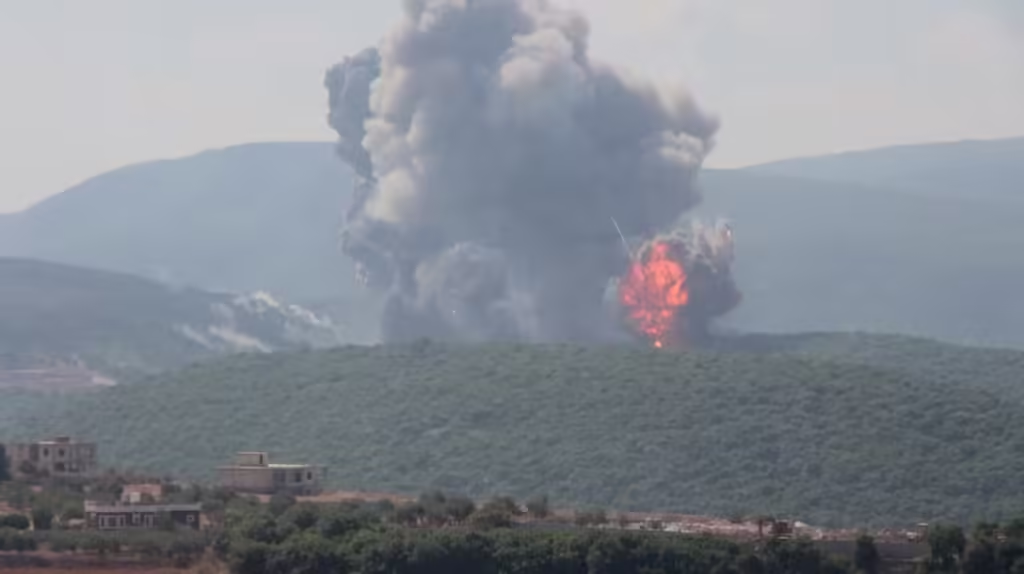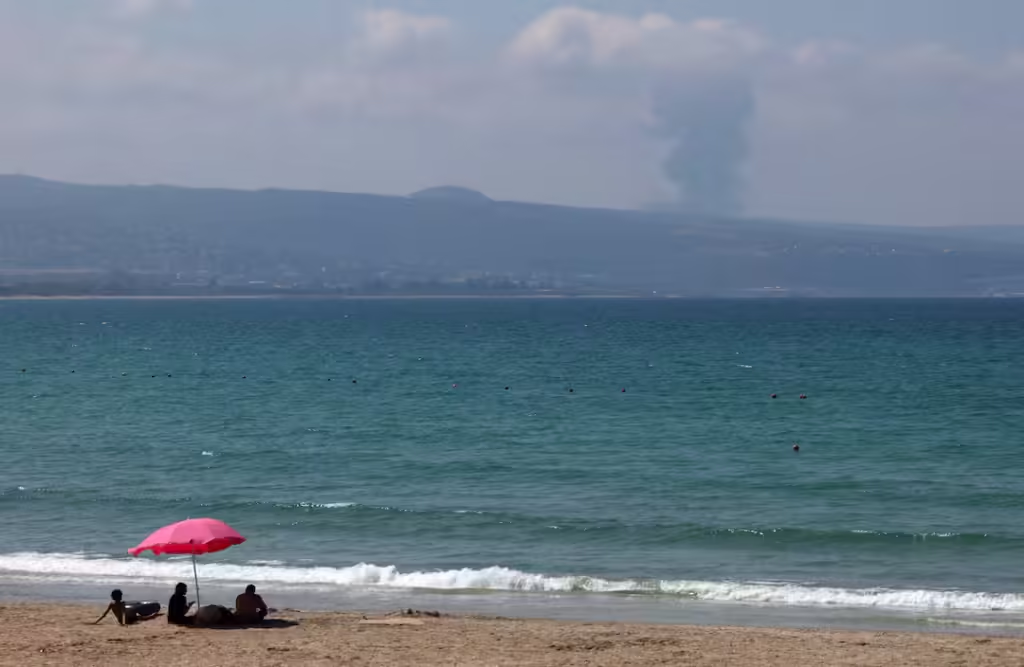Hezbollah launched hundreds of rockets and drones at Israel early Sunday. In response, Israel’s military struck targets in Lebanon using around 100 jets to prevent a larger attack.
This marked one of the most significant clashes in over ten months of border warfare. Missiles were visible in the dawn sky, leaving dark trails as air raid sirens sounded in Israel, with distant explosions lighting up the horizon. Smoke rose over homes in Khiam, southern Lebanon.
On Sunday evening, more sirens sounded in Rishon Letsiyon, central Israel, as the Israeli Defense Forces (IDF) reported that one projectile from the southern Gaza Strip landed in an open area.
Hamas claimed responsibility, stating they had fired an “M90” rocket at Tel Aviv.
The ongoing conflict, which began in tandem with the war in Gaza, risks escalating into a regional conflict involving Hezbollah’s backer, Iran, and Israel’s primary ally, the United States.
With three deaths confirmed in Lebanon and one in Israel, both sides have expressed a desire to avoid further escalation but warned of potential future strikes.
Hezbollah’s leader, Sayyed Hassan Nasrallah, stated that the group’s barrage, a retaliation for the assassination of senior commander Fuad Shukr last month, was completed as planned.
However, Nasrallah noted that they would assess the impact and might respond again if the results were insufficient.
Israeli Prime Minister Benjamin Netanyahu emphasized that Israel is determined to defend itself, stating, “This is not the end of the story.”
Earlier, Netanyahu claimed that Israel’s pre-emptive strikes had thwarted a larger Hezbollah attack, while Nasrallah downplayed their effectiveness.
In Gaza, Israeli airstrikes continued, killing at least five Palestinians in Gaza City early Monday.
Ceasefire talks in Cairo failed to yield an agreement, though a senior U.S. official described the discussions as constructive.
Hezbollah’s rocket and drone strikes targeted an intelligence base near Tel Aviv, according to Nasrallah. Israel reported intercepting all drones aimed at what Netanyahu described as a strategic location in central Israel.
Lebanese sources confirmed at least 40 Israeli strikes in southern Lebanon, marking one of the heaviest bombardments since the hostilities began in October.
As tensions rise, both sides are cautious about triggering a full-scale war, yet the situation remains volatile with the potential to escalate further.
Israel and Hezbollah Trade Missile Strikes Amid Rising Escalation Concerns.
Join our THE NEWS TIMES to keep talking on the latest News missions, and more! And if you have a news tip, correction or comment, let us know at.
Discover more from THE NEWS TIMES
Subscribe to get the latest posts sent to your email.

